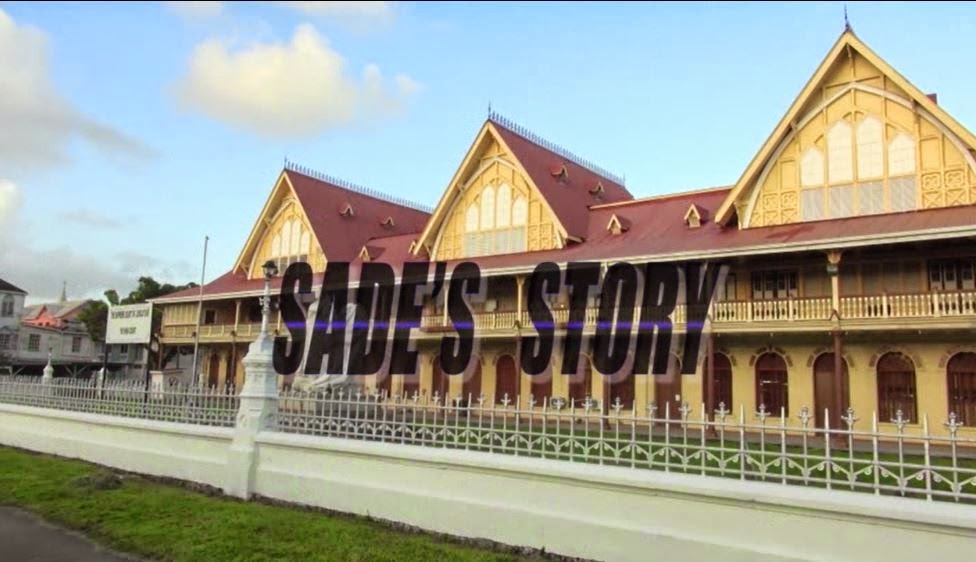On
Tuesday, June 17, psychologist Dr. Faith Harding; Director of AYUPSA: National
Center for Suicide Prevention, Swami Aksharananda, and Executive Director of
the Guyana Responsible Parenthood Association (GRPA), Rev. Patricia
Sheerattan-Bisnauth, formed a very insightful panel discussing religious,
societal and cultural influences on the mental health outcomes of lesbian, gay,
bisexual and transgender (LGBT) Guyanese.
Panelists (L to R): Rev. Patricia Sheerattan-Bisnauth,
Swami Aksharananda and Dr. Faith Harding participating in the panel discussion.
The
expert panel was the special event of the tenth annual LGBT Film Festival
hosted by the Society Against Sexual Orientation Discrimination (SASOD), dubbed
Painting the Spectrum 10. The discussion followed the feature film for the
evening titled “And the Unclaimed,” a documentary which chronicles the events
surrounding the suicide of two young girls in West Bengal, India. The story
reveals their love affair and non-acceptance by the village community and
families, which perhaps pushed them towards the end of the road – committing
suicide.
Though
set in India, numerous facets of the film relate to Guyanese society, it
ignited a very stimulating and interactive discussion between the panel and the
audience. Much of the discussion focused on the impact of religion on the
expression of sexuality orientation and gender identity; the possible push
factors to suicide in LGBT Guyanese, with a particular focus on family and societal
rejection or non-acceptance and the differences between Christian and Hindu
theology as it relates to homosexuality and transgenderism.
Dr.
Harding spoke about her experiences as a professional psycho-therapist, as she
encounters many LGBT Guyanese in her clinical practice, some of who have
attempted or contemplated suicide. A large percentage of her LGBT clients have
struggled with depression often leading them to contemplate suicide, she noted.
“It is painful to see how torn and broken members of the LGBT community are”
said Dr. Harding.
She
noted that like in the film, numerous LGBT Guyanese deal with personal turmoil,
rejection, fear, anxiety and depression on a daily basis. Daily, LGBT Guyanese
struggle with self-acceptance and the right to just live equally and co-exist
peacefully in society.
Dr.
Harding was asked, if she were the President of Guyana, whether she would
assent to a bill decriminalising LGBT activities. Dr. Harding responded
confidently that she would assent, “because it is a basic human right and I
cannot deny basic human rights. It would be irresponsible of me as a leader to
not do something about an issue that claims so many young lives,” Dr. Harding
pleaded.
Dr. Faith Harding speaking at the panel on mental
health issues affecting LGBT Guyanese.
Swami
Aksharananda shared that in Hindu mythology that are already exposed to all
these extremes and differences. “Images and concepts exist and are accepted
without taboo and question. From that background the issues do not present too
much of a challenge or questioning for the Hindu community,” he stated.
Although
there isn’t much resistance towards homosexuality in the Hindu religion, Swami
Aksharananda still believes that there is a need for much more conversations
about LGBT issues, their daily struggles and mental health issues that can
arise from societal exclusion.
While
a prominent pastor feels LGBT people should be on an island by themselves,
there are others like Reverend Sheerattan-Bisnauth who are more progressive in
their faith and theology, reading the scriptures with a lens for liberation and
justice.
Reverend
Sheerattan-Bisnauth noted that many of the religious leaders who are opposed to
homosexuality are of the mistaken belief that sexual difference causes a
breakdown in families, without understanding the numerous types of family structure
that exist. “Many of them are caught up with hetero-normative views of
families,” the Presbyterian cleric noted.
She
noted that there needs to be a space for more healthy discussions about mental
health issues affecting LGBT Guyanese and that GRPA is committed to continuing
the discourse in collaboration with SASOD and other stakeholders in the
country.











